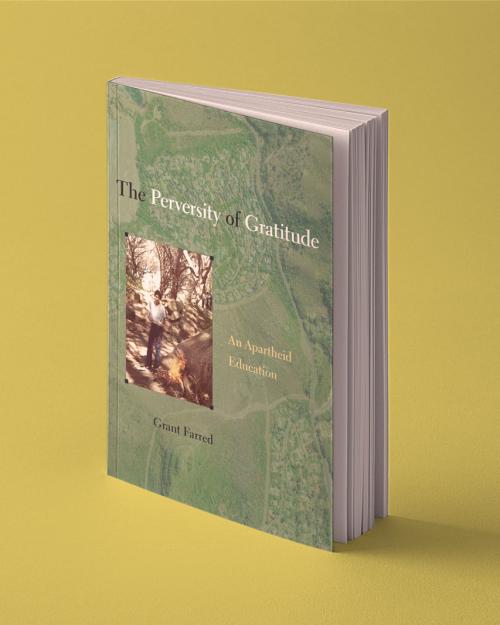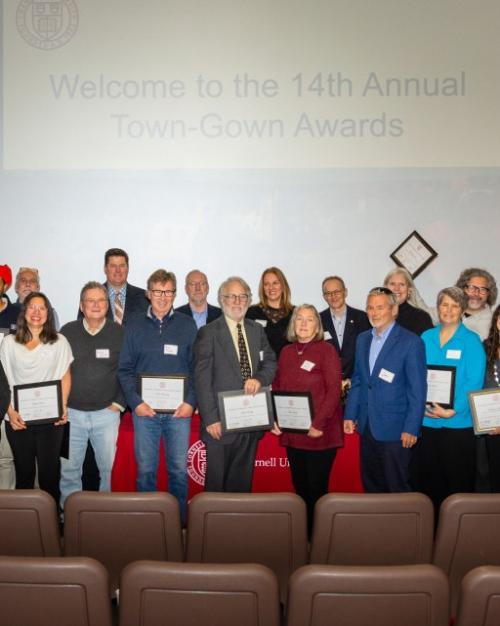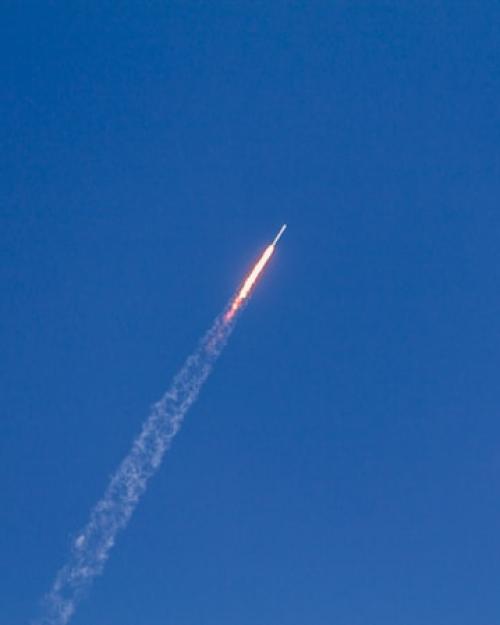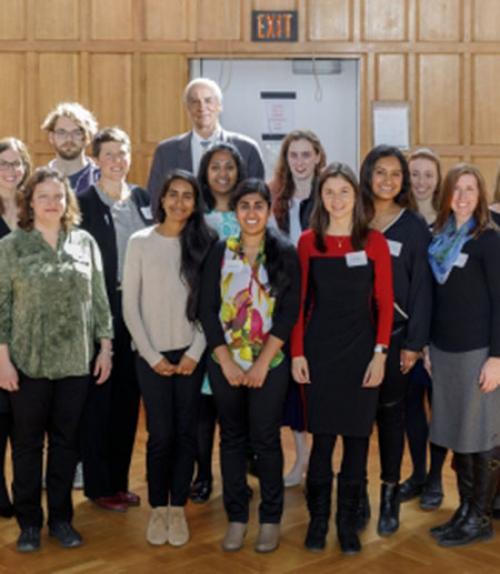Several individuals and organizations received Constance E. Cook and Alice H. Cook Awards March 9. Cook Awards honor Cornell students, faculty and staff members for their commitment to women’s issues and for improving the climate for women at Cornell. The Cook Award Committee and the University Diversity Council select winners from nominations made by members of the Cornell community.
The awards honor the late Constance E. Cook, Cornell’s first female vice president, and the late Professor Emerita Alice H. Cook, founding member of Cornell’s Committee on the Status of Women.
The 2017 recipients and highlights of their nominations:
Doctoral candidates Smaranda Sandu, Lila Greco and James Barnes, officers of the Cornell student chapter of the Association for Women in Mathematics (AWM), and Tara Holm, professor of mathematics, faculty adviser. AWM seeks to increase the number of undergraduate women enrolled in mathematics courses at Cornell, create a support network for undergrad and graduate students and provide a forum to discuss issues pertaining to women in math.
Elizabeth Brundige, assistant dean for international programs, associate clinical professor of law and the Jack G. Clarke Executive Director of International and Comparative Legal Studies in the Law School. From 2012-16, Brundige was executive director of the Avon Global Center for Women and Justice. She also founded the Law School’s Global Gender Justice Clinic. She has mentored dozens of students in her Gender Justice Clinic, paying particular attention to the needs of survivors of gender-based violence. She and her students persuaded the Ithaca Common Council to adopt a resolution recognizing the right to be free from domestic violence.
Cynthia Leifer, associate professor of immunology, College of Veterinary Medicine. Leifer has chaired the Committee on the Status of Faculty Women in the Veterinary college since 2014, organizing panels on “What I wish I knew when I started a lab,” “Family work/life balance” and workshops such as “Effectively using social media for advancing your science” and “Building and managing teams.” She continued the “Mellow Hour,” a social event for early-career and new faculty to facilitate networking, conversation and collaboration.
Nozomi Nishimura, assistant professor of biomedical engineering, College of Engineering. Nishimura has offered technical workshops at several conferences for women in science and she advises the Cornell chapter of the Scientista Club, a national organization that empowers pre-professional women in STEM fields. She also lectures for the Curie Program, which brings high school girls to campus during the summer for exposure to engineering.
Poornima Padmanabhan, postdoctoral research associate, Department of Chemical and Biomolecular Engineering, College of Engineering. In 2008Padmanabhan joined CBE Women, a group that supports female graduate students by offering professional skills workshops; she became the organization’s president in 2013. The group conducts workshops and seminars connecting students to female faculty and performed outreach to high school girls and their families in rural New York.
Anna Waymack, doctoral candidate in medieval studies, College of Arts & Sciences. Waymack is founder and president of S.A.N.G. (Sexual Assault Network for Grads,) which works to build awareness and coordinate advocacy on sexual assault for graduate students across the United States. She organized the 2016 Cornell Sexual Assault Awareness Week and has been a central member of the Sexual Violence Prevention Work Group for Graduate and Professional Students.
Undergraduate students Agi Csaki, Harini Kannan, Nikita Gupta, Vinisha Mittal, officers of Women in Computing at Cornell (WICC), and Eva Tardos, the Jacob Gould Schurman Professor of Computer Science, faculty adviser. WICC was founded in March 2013 to bring together women in computing fields at Cornell, expand their opportunities and successes, provide a support network of women, and empower them to encourage younger women to consider computing fields. WICC organizes a mentorship program that pairs younger students with senior students, events throughout the year including information sessions, a weekly lunch series and end-of-semester parties. It also runs events that seek to change perceptions and dispel stereotypes, such as the #ILookLikeAnEngineer social media campaign.
Laura Weiss, associate dean of students, Student and Campus Life, and director of the Cornell Women’s Resource Center. Weiss came to Cornell in 2006 to lead the Cornell Women’s Resource Center (WRC). She developed a diverse portfolio of programming that supports women’s education, empowerment and advancement at Cornell. Feminism: Food for Thought, a weekly series, invites Cornell student organizations to informal discussions about a women’s issue over dinner at Flora Rose House. She also advises Consent Ed, a peer-to-peer education program in the WRC, that engages Cornell students in conversations about sex, consent and social responsibility.
Jenny Wurster, teaching support specialist in physics, College of Arts & Sciences. Wurster has been an integral part of outreach programs for girls in K-12 education including Expanding Your Horizons, Engaged Cornell and 4-H Club. The Expanding Your Horizons Conference provides a hands-on opportunity for girls in grades 7-9 and their parents to learn about careers involving mathematics, science and engineering. She also supports the Ithaca Community Childcare Center Annual Science Day promoting science for youth in our area.
This article originally appears in the Cornell Chronicle.




